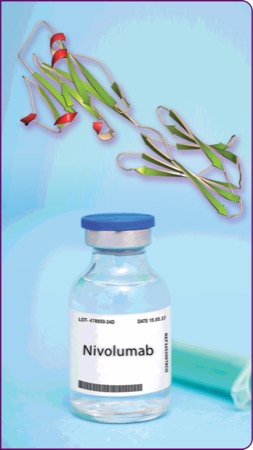
The FDA has approved nivolumab (Opdivo, Bristol Myers Squibb) with ipilimumab (Yervoy, Bristol Myers Squibb) for the first-line treatment of adults with unresectable or metastatic hepatocellular carcinoma.
Efficacy was evaluated in CheckMate 9DW (ClinicalTrials.gov Identifier: NCT04039607), a randomized (1:1), open-label trial in 668 adults with unresectable or metastatic HCC. Patients had histologically confirmed HCC, a Child-Pugh class A score, ECOG Performance Status 0 or 1, and no prior systemic therapy for advanced disease. Patients were randomized to receive either 1 mg/kg of IV nivolumab and 3 mg/kg of IV ipilimumab every three weeks for a maximum of four doses, followed by 480 mg of IV nivolumab every four weeks, or investigator’s choice of lenvatinib (Lenvima, Eisai) or sorafenib.
The primary efficacy outcome measure was overall survival (OS) in all randomized patients. Overall response rate (ORR) based on RECIST 1.1 criteria, assessed by blinded independent central review, was an additional efficacy outcome measure.
Median OS was 23.7 months (95% CI,18.8-29.4 months) in the nivolumab plus ipilimumab arm and 20.6 months (95% CI, 17.5-22.5 months) in the lenvatinib or sorafenib arm (hazard ratio, 0.79; 95% CI, 0.65-0.96; P<0.0180). ORR was 36.1% (95% CI, 31.0%-41.5%) and 13.2% (95% CI, 9.8%-17.3%) in the respective arms (P<0.0001).
The most common adverse reactions (>20%) were rash, pruritus, fatigue and diarrhea.
The full prescribing information for nivolumab is posted on Drugs@FDA.
—GEN Staff
Based on a press release from the FDA.
This article is from the May 2025 print issue.

